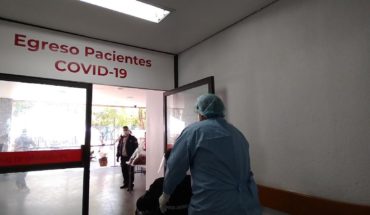Not even the greatest of theorists thought that there would be such a radical and widespread change in the world after the pandemic and that it would affect all areas of daily life, without turning back.
In English there is an acronym used to describe these processes of volatility and uncertainty (uncertainty) and it is known as VUCA.
Faced with the pandemic, it was difficult to predict threats or seize opportunities to adapt to this environment that seemed out of reach.
From different organizations to companies had to rethink the smallest details – among them – how to lead remotely in offices. Empty positions, no doubt, was one of the challenges and projecting confidence in the midst of one crisis in the dark the next.
In this environment, it was necessary to identify factors that favored resilience and not only highlight “hard” skills. Anticipating change as a result of VUCA is a consequence of a resilient leader,” says Suhayl Abidi, professor of strategy and director of the VUCA Study Centre at Amity University in India.
Thus, the premise of “leading with purpose” was established, with the plan that people fall in love with what they do, that people identify as much as the leader with the purpose and that together they seek the same goal, but all this was necessary to achieve without physically meeting.
In this, feedback and order are vital, always starting from the positive, and then addressing other aspects and then the valuable help. However, this new leadership contemplates breaking beliefs and challenges leaders to set real short-term goals, and to communicate directly only what is fair and precise. Time became more valuable and it is necessary to be more and more efficient.
One of the keys to this process is commitment. In the ancient world it was thought that the commitment was the same as a contract, I demand it because I give you a salary every month. But, the type of commitment that was installed is based on a relationship of trust and it is successful when I deposit it in you so that we have a shared purpose; in that we both know the contribution of each one to achieve the goal and we challenge each other together to do so, each one contributes his skills, resources, knowledge and history.
Currently, building a team is based on bringing together a group of people who achieve what they propose, who live the passion, because today, more than before, passion is what will unite us. We must take advantage of the crisis situation from which we come and leave the waily wall to focus on today’s world.
The pandemic highlighted how quickly the important and fundamental facts of our time can be altered.
An article in Harvard Business Review by Martin Reeves and Kevin Whitaker reasoned that “Resilience deals with the unknown, the unpredictable, and the improbable…. In the short term, a crisis may seem tactical, but over time, new needs create opportunities. Crises can also be the best pretext for accelerating long-term transformational change. Therefore, one of the key functions of leaders is to change horizons.
When we talk about the ability to implement an end, I am not talking about someone who knows how to speak beautifully, but someone who dares to speak first, who shows how to build the road, who dares to make mistakes and is not afraid to ask for help. And above all, venture to set concrete goals of what we are going to do for real indicators, today, tomorrow or this Friday, not leave objectives for next month.
Today, leaders have the challenge of promoting autonomy, organizational culture, generating a sense of belonging and participatory closeness through creation, innovation, and surprise. But – above all – they must show confidence and passion.
The content expressed in this opinion column is the sole responsibility of its author, and does not necessarily reflect the editorial line or position of El Mostrador.





